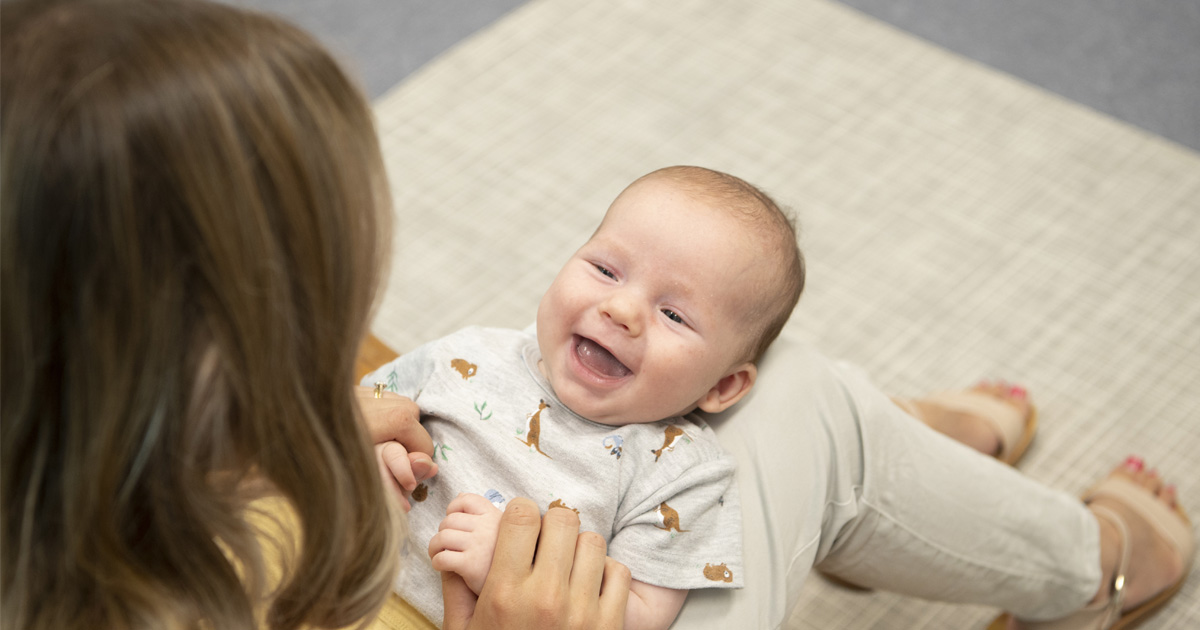Search
The clinical process for being evaluated for an autism diagnosis is often time consuming and stressful for individuals and their caregivers. While experience of and satisfaction with the diagnostic process has been reviewed in the literature, few studies have directly investigated the viewpoints of individuals diagnosed with autism and caregivers of autistic individuals about what is important in the autism diagnostic process.
Emerging research suggests that maternal immune activation (MIA) may be associated with an increased risk of adverse neurodevelopmental and mental health outcomes in offspring. Using data from the Raine Study, we investigated whether MIA during pregnancy was associated with increased behavioral and emotional problems in offspring longitudinally across development.
Delays within the motor domain are often overlooked as an early surveillance marker for autism. The present study evaluated motor difficulties and its potential as an early predictive marker for later autism likelihood in a cohort of infants showing early behavioral signs of autism aged 9-14 months. The motor domain was evaluated using the motor subscales of the Mullen Scales of Early Learning at baseline, and at a 6-month follow-up.
Several researchers have hypothesised that individuals with Autism Spectrum Disorder (ASD) show encoding delays in their obligatory event-related potentials (ERPs)/ event-related fields (ERFs) for low-level auditory information compared to neurotypical (NT) samples. However, empirical research has yielded varied findings, such as low-level auditory processing in ASD samples being unimpaired, superior, or impaired compared to NT samples. Diverse outcomes have also been reported for studies investigating ASD-NT differences in functional lateralisation of delays.
We investigated whether a commonly used research assessment - the Autism Observation Scale for Infants (AOSI) - accurately measures autism behaviours among infants showing early signs of autism identified within the community. The AOSI is often included in studies tracking the development of infants at increased likelihood of autism, such as the infant siblings of diagnosed children. However, the suitability of this measure has not previously been tested with community-referred infants.
The study of temperament in Autism Spectrum Disorder (ASD) has the potential to provide insight regarding variability in the onset, nature, and course of both core and co-morbid symptoms. The aim of this systematic review was to integrate existing findings concerning temperament in the context of ASD. Searches of Medline, PsychInfo and Scopus databases identified 64 relevant studies. As a group, children and adolescents with ASD appear to be temperamentally different from both typically developing and other clinical non-ASD groups, characterized by higher negative affectivity, lower surgency, and lower effortful control at a higher-order level.
The aim of this study was to understand the challenges experienced by families obtaining a diagnosis and therapy for developmental coordination disorder (DCD). Parents of 435 children aged 4-18 years with persistent motor difficulties consistent with a diagnosis of DCD completed an online survey. Diagnostic timeline and diagnostic label/s received were examined, along with therapies accessed.
Autism spectrum disorder (ASD) is a group of neurodevelopmental disorders which are more common in males. The 'prenatal sex steroid' hypothesis links excessive sex-steroid exposure during foetal life with the behavioural differences observed in ASD. However, the reason why sex steroid exposure may be excessive remains unclear. Epidemiological studies have identified several environmental risk factors associated with ASD, including developmental vitamin D (DVD) deficiency.

A world-first program for babies with delays in their social and communication skills has been launched in Western Australia, thanks to support from the National Disability Insurance Agency (NDIA).

New research evaluating the potential cost savings of a therapy for babies displaying early autism signs has predicted a three dollar return to Australia’s National Disability Insurance Scheme (NDIS) for every dollar invested in therapy.
